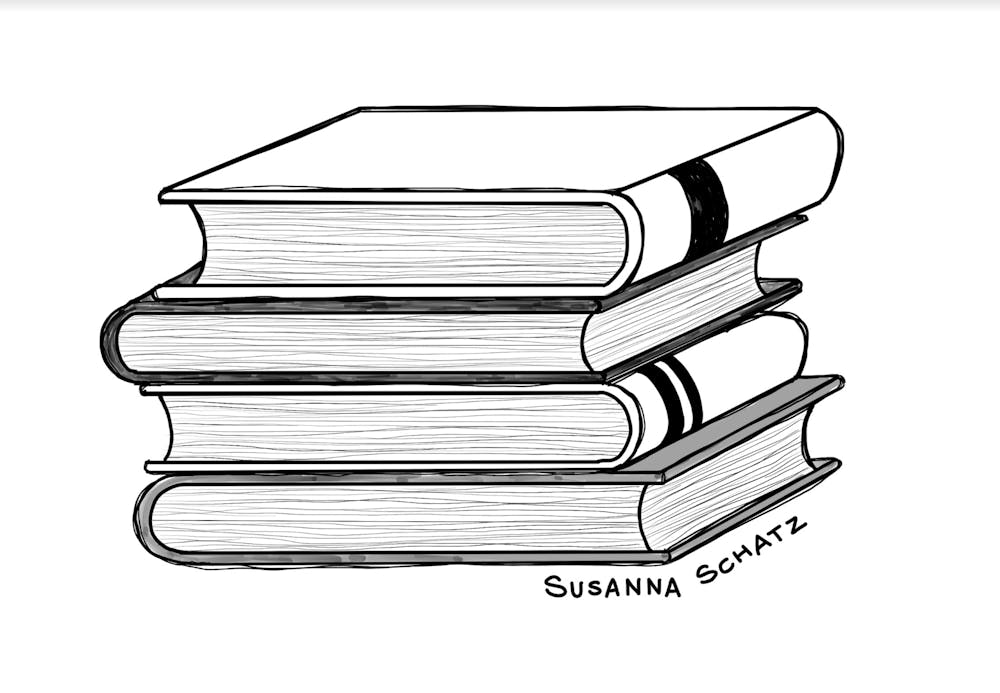If you struggle to find time for fun reading, this is the spot for you! Niche Reads recommends novels that relate to academic (or other) interests so that you can explore a new book while still feeling productive. Check back each week for more cool books!
If there’s one thing that’s true about Middlebury students, it’s that they’re busy. They’ve got work to do, meetings to attend and social lives to maintain. With all of these external responsibilities, reading for pleasure is often the first hobby to go. How can you justify starting a fun and interesting novel when you already have to read 300 pages of sociolinguistic historical analysis of the philosophy of chemistry?
What if, to help get over that hump, you had a convenient list of books to choose from that aligned with your academic interests? What if you could read a book that was both personally fulfilling and intellectually productive?
Well, you’re in luck! Niche Reads will be recommending books to fit your interests, starting with novels that relate to political science. Here you’ll find three carefully selected books that explore the relationship between personal identity and political upheaval.
“Where You Come From” by Saša Stanišić:
This novel explores in heart-wrenching detail what it means to be from a country that no longer exists. If you’re looking for a more traditional narrative, you might be happier with the other two recommendations, but if you’re in the mood for something less conventional, “Where You Come From” is worth the ride.
Against the backdrop of a war-ravaged, formerly Yugoslavian village of 13 people, this structurally innovative work of auto-fiction examines the fallout of both war and immigration. It twists chronology and takes risks in its structure to craft a unique and compelling story, dealing with national and personal identity.
Stanišić recounts his own life and family history for the benefit of these rich explorations with honesty, care and humor. At once personal and universal, “Where You Come From” seeks to answer the titular question, which may not be as philosophical as we’d like to assume.
You should read this book if you like experimental story structures, if you’re interested in family dynamics or if you’re looking for an introspective read.
“Beasts of a Little Land” by Juhea Kim:
“Beasts of a Little Land” follows many characters, but its main focus is Jade, a young courtesan in Japanese-occupied Korea. Through a sweeping, decades-long account of Jade’s life, the novel explores how people can live with war and brutality, and the importance of a national identity.
Detailing the process of ideological radicalization, for better or for worse, the novel showcases the personal consequences of taking bold political action.
While impressive overall, “Beasts of a Little Land” really shines on a macro level. Kim masterfully interweaves seemingly disparate plot elements to create a startlingly beautiful and cohesive story.
You should read this book if you like epic, intricate stories, if you are interested in historical fiction or if you’re not afraid of moral complexity.
“A Fine Balance” by Rohinton Mistry:
Amidst religious persecution and political turmoil, four strangers in an unnamed city in 1970s India come together to create a safe haven and a makeshift family in a small apartment.
Brimming with compassion and urgency, “A Fine Balance” is an impressive literary feat, from its ambitious scope to its vivid setting and beautiful prose. Far and away, though, the standout element of this novel is the depth of its characters. The four main characters — Dina, Ishvar, Om and Maneck — relate to each other with remarkable humanity and complexity.
While beautiful, “A Fine Balance” is extremely sad and often disturbing. Don’t read it unless you’re prepared for a difficult read.
You should read this book if you like the found-family trope, if you gravitate toward character-driven stories or if you’re ready to cry.




